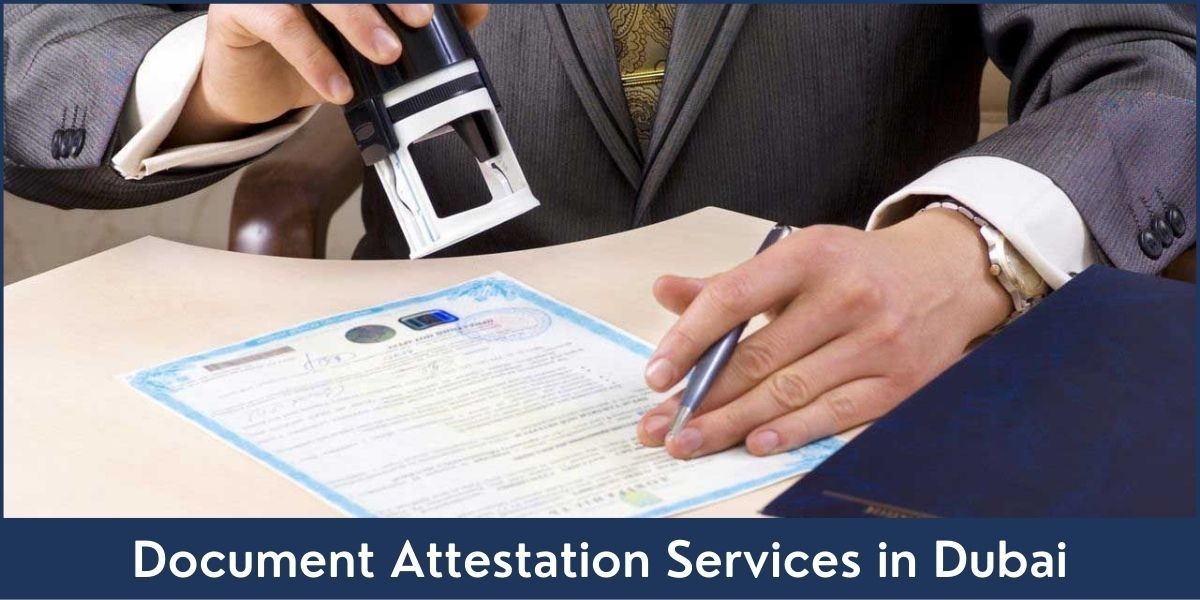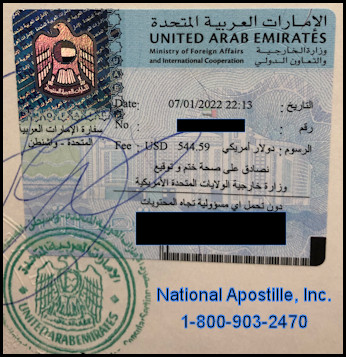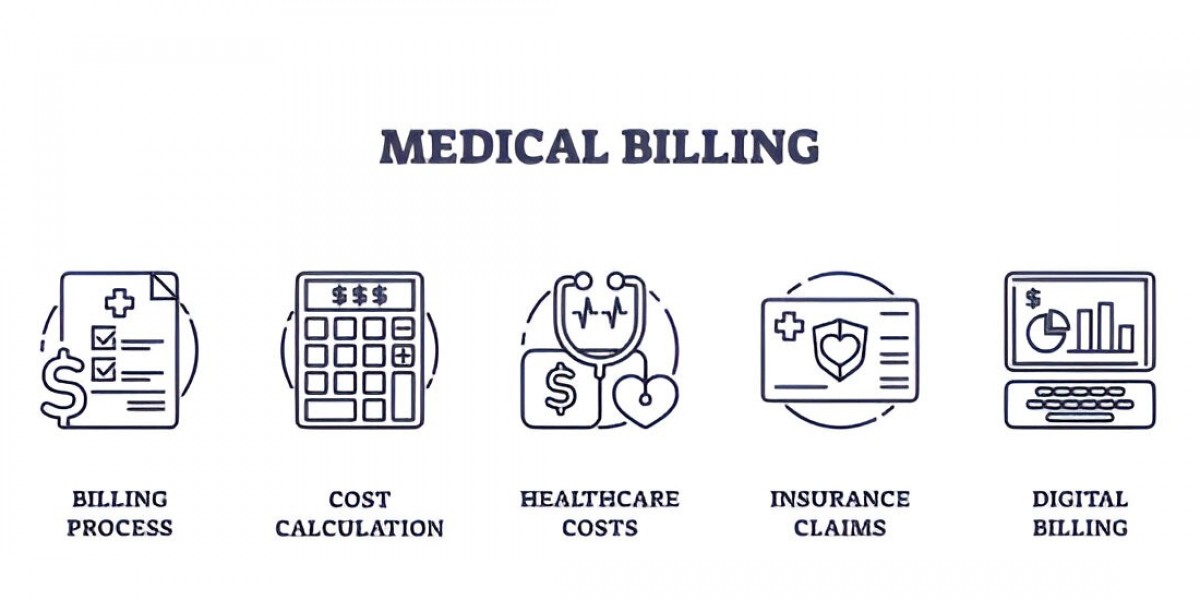When you’re planning to work, study, or settle in the United Arab Emirates, document attestation is one of the most critical steps in your journey. For individuals in the Philippines, going through the UAE embassy attestation process might sound complicated at first, but with the right knowledge, preparation, and guidance, it can be done quickly and smoothly. Whether you’re a professional, a student, or a family member joining your loved ones abroad, proper attestation of your documents ensures they are recognized and accepted by the UAE authorities.
In this comprehensive guide, we’ll explore everything you need to know about fast and easy UAE embassy attestation in Philippin, including its importance, the step-by-step process, required documents, costs, timelines, and practical tips to make the experience hassle-free.
What Is UAE Embassy Attestation?
UAE embassy attestation is a legal process that verifies the authenticity of documents issued in the Philippines so they can be officially used in the United Arab Emirates. This process involves multiple levels of verification by different authorities, including the Department of Foreign Affairs (DFA) in the Philippines and the UAE embassy. Once your documents are attested, they become legally valid in the UAE for purposes such as employment, education, family visas, business transactions, or migration.
This attestation essentially proves that your documents—such as diplomas, marriage certificates, birth certificates, or company papers—are genuine. It helps UAE authorities trust and recognize the legitimacy of the information presented, protecting both the applicant and the host country.
Why UAE Embassy Attestation Is Important
Many Filipinos dream of building their careers in the UAE because of its strong economy, tax-free income, and diverse opportunities. However, before your credentials can be accepted, they must go through official attestation. Here’s why this step is so important:
Legal recognition: Attestation confirms that the document is authentic and legally valid for use in the UAE.
Employment requirement: Employers in the UAE often require attested educational and personal documents before issuing a work visa or employment contract.
Visa and immigration compliance: For family visas, student visas, or residency permits, attested documents are essential to complete the legal process.
Business and investment use: Entrepreneurs who want to establish a company in the UAE must have attested business documents to comply with regulations.
Prevention of fraud: Attestation ensures that forged or altered documents are filtered out, safeguarding both the applicant and the receiving country.
Documents That Require UAE Embassy Attestation
Depending on your purpose of going to the UAE, different types of documents need to be attested. Here are the most commonly required documents:
Educational Documents
High school diploma
College diploma and transcript of records
Professional certificates or training records
Board exam certificates (if applicable)
Personal Documents
Birth certificate
Marriage certificate
Medical certificates (if required)
Divorce decree (if applicable)
Commercial Documents
Business registration certificates
Articles of incorporation
Memorandum of agreement
Power of attorney
Other Supporting Documents
Police clearance certificate
NBI clearance
Medical examination reports
Employment contracts or offers (for some applications)
Each document type may have slightly different attestation requirements, but they all follow the same general process of authentication and legalization.
Step-by-Step Process for UAE Embassy Attestation in the Philippines
Many people think embassy attestation is complicated because it involves multiple offices. But when broken down into simple steps, the process becomes more manageable. Here’s the typical step-by-step process to follow:
Step 1: Notarization (If Required)
Some documents—especially educational or commercial papers—may need to be notarized by a licensed notary public in the Philippines. This is the first step to prove that the document is issued and signed by an authorized person.
Step 2: Verification by the Issuing Authority
After notarization, your documents may need to be verified by the issuing authority. For example:
School records must be certified by the Commission on Higher Education (CHED) or the Department of Education (DepEd).
PSA-issued certificates should be obtained in their official security paper.
Business documents should be verified by the Department of Trade and Industry (DTI) or the Securities and Exchange Commission (SEC).
Step 3: DFA Authentication (Red Ribbon or Apostille)
The Department of Foreign Affairs (DFA) authenticates your document to verify that it’s genuine and issued by a legitimate source. While many countries now accept Apostille certification, the UAE is not a member of the Apostille Convention. Therefore, after DFA authentication, the document must still go through the UAE embassy for final attestation.
DFA authentication involves:
Booking an appointment with DFA
Submitting the original and photocopies of the documents
Paying the processing fee
Receiving the authenticated document with a DFA red ribbon or certificate
Step 4: UAE Embassy Attestation
Once DFA authentication is complete, you must submit your documents to the Embassy of the United Arab Emirates in Manila. This is the final step where the UAE embassy verifies and legalizes the DFA-authenticated document, making it valid for use in the UAE.
The UAE embassy will:
Review the DFA authentication
Verify the document
Attach an attestation seal or stamp
Issue a receipt for your records
Step 5: Ministry of Foreign Affairs (MOFA) Attestation in UAE
When you arrive in the UAE, the attestation process is completed by the Ministry of Foreign Affairs of the United Arab Emirates (MOFA). This is a mandatory step to fully legalize the document for use in employment, immigration, or other official transactions.
How Long Does UAE Embassy Attestation Take?
The processing time for UAE embassy attestation in the Philippines depends on several factors, including the type of document, the number of documents, and the method you use to process them. On average:
DFA authentication: 3 to 7 working days (can be expedited for a fee)
UAE embassy attestation: 3 to 5 working days
Total processing time: Approximately 1 to 2 weeks
Using a professional attestation service can sometimes shorten this timeframe, as they handle the steps efficiently on your behalf.
Cost of UAE Embassy Attestation in the Philippines
The total cost of UAE embassy attestation varies depending on the type of document, number of pages, and additional services used. Here’s an approximate breakdown:
Notarization fee: ₱200 – ₱500 per document
DFA authentication fee: ₱100 – ₱200 per document
UAE embassy attestation fee: USD 40 – USD 50 (approximately ₱2,000 – ₱3,000) per document
Courier or service fee: ₱300 – ₱1,000 (if applicable)
While these are estimated amounts, fees can change over time, so it’s always wise to check the latest official rates before proceeding.
Common Mistakes to Avoid During UAE Embassy Attestation
Even a small error can delay or complicate the attestation process. Here are some common mistakes to watch out for:
Submitting incomplete documents: Missing a seal, signature, or certification can lead to rejection.
Incorrect spellings or mismatched details: Ensure names and information match across all documents.
Using unofficial copies: Only original or certified true copies are accepted.
Skipping issuing authority verification: This step cannot be bypassed for most educational and commercial documents.
Late submission or poor timing: Attestation should be done before your visa or job offer processing deadline.
Being meticulous from the start can save you time, money, and unnecessary stress.
How to Make the Process Faster and Easier
While attestation requires patience and accuracy, there are practical ways to make the process more efficient:
Prepare all documents early
Don’t wait for a job offer or travel date before starting the attestation process. Preparing early gives you enough time to address any issues.Use official channels
Always deal directly with accredited agencies, government offices, or the UAE embassy. Avoid shortcuts that can risk the validity of your documents.Double-check information
Make sure your name, dates, and details are consistent across all documents. Even a small spelling difference can cause problems during verification.Book appointments in advance
DFA and UAE embassy slots can fill up quickly. Booking early ensures a smooth schedule and avoids unnecessary delays.Consider professional attestation services
If you’re busy or based outside Metro Manila, using a reputable attestation agency can save you time and effort. These agencies know the process well and can fast-track the steps legally.
Who Needs UAE Embassy Attestation?
UAE embassy attestation is necessary for a wide range of people:
Overseas Filipino Workers (OFWs) starting a new job in the UAE
Students pursuing higher education in UAE universities
Families joining a spouse or parent on a residency visa
Entrepreneurs and investors expanding their business to the UAE
Professionals applying for licensing or registration with UAE authorities
If you fall under any of these categories, attestation is not just a formality—it’s a legal requirement.
UAE Embassy Attestation vs. Apostille: What’s the Difference?
Some countries follow the Apostille Convention, which simplifies the legalization of documents through a single authentication step. Unfortunately, the UAE is not a member of this convention. This means Philippine documents still need to go through the UAE embassy for attestation after DFA authentication.
In short:
Apostille = One-step process accepted in member countries.
UAE embassy attestation = Multiple steps (DFA + UAE embassy + MOFA UAE) for non-Apostille member states.
Understanding this difference is crucial, especially for those who have previously processed documents for other countries.
Tips for OFWs and First-Time Applicants
For many Filipinos, the UAE is their first overseas job destination. If you’re processing attestation for the first time, here are practical tips to guide you:
Keep multiple photocopies of each document in case they’re needed during the process.
Always bring a valid ID and official receipts to every appointment.
Label your documents to avoid mixing them up.
Check the UAE embassy website for updated schedules and requirements.
Be cautious of fixers or unauthorized individuals offering “fast” processing without legal assurance.
Remember, official attestation may take time, but it guarantees the legal recognition of your documents.
The Role of Professional Attestation Agencies
While individuals can process embassy attestation on their own, many choose to work with professional attestation agencies. These agencies can:
Handle notarization and verification steps
Book DFA and embassy appointments
Submit and collect documents on your behalf
Track progress and notify you of updates
Save you from multiple trips to different offices
If you choose to use an agency, make sure it is authorized and reputable. Do a background check, read reviews, and verify their credentials.
After UAE Embassy Attestation: What to Do Next
Once your documents are attested by the UAE embassy in the Philippines, you’re almost ready to use them in the UAE. However, one final step remains:
MOFA UAE attestation is required upon arrival in the UAE to fully legalize your documents. This is done at a MOFA office or through their online services.
Once attested by MOFA, the document becomes legally binding and can be used for employment, education, visa processing, or business registration.
Keep your attested documents in a safe and organized folder to avoid misplacing them during travel.
Frequently Asked Questions (FAQs)
Q1: How far in advance should I process my documents for UAE embassy attestation?
Ideally, start at least 1–2 months before your expected departure date to allow time for any delays or corrections.
Q2: Can someone else submit my documents on my behalf?
Yes, a representative can submit documents if they have an authorization letter and valid identification.
Q3: Do I need to attest photocopies or originals?
Usually, original documents are required. In some cases, certified true copies may be accepted if issued by the relevant authority.
Q4: Can I use Apostille instead of UAE embassy attestation?
No. The UAE is not a member of the Apostille Convention, so UAE embassy attestation is mandatory.
Q5: How long is the attestation valid?
Once attested, the document remains valid as long as the document itself does not expire (e.g., police clearances have validity periods, but diplomas don’t expire).
Final Thoughts
Attesting your documents for use in the UAE might feel overwhelming at first, but with the right information and preparation, it can be a smooth and straightforward process. UAE embassy attestation services in the Philippines is not just a bureaucratic formality—it’s a legal requirement that ensures your documents are recognized and respected abroad.
By understanding the step-by-step process, preparing your documents early, avoiding common mistakes, and considering professional help if needed, you can save valuable time and energy. Whether you’re chasing career growth, pursuing education, or reuniting with family in the UAE, completing the attestation process is a crucial step toward turning your plans into reality.











